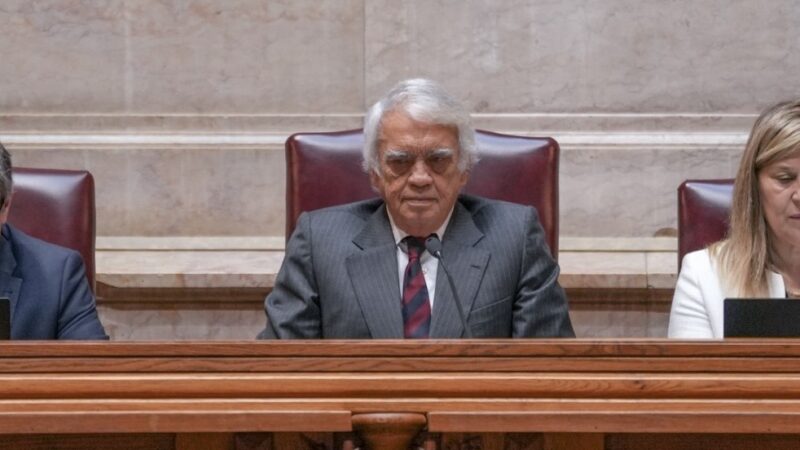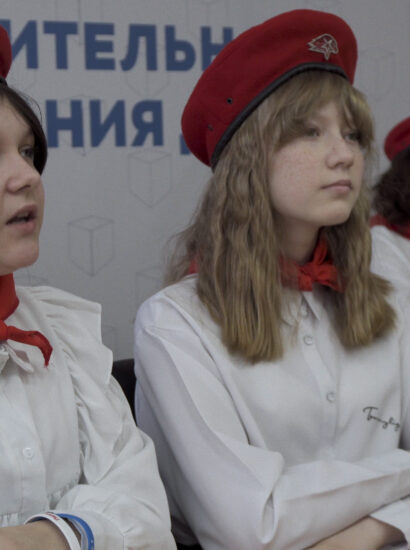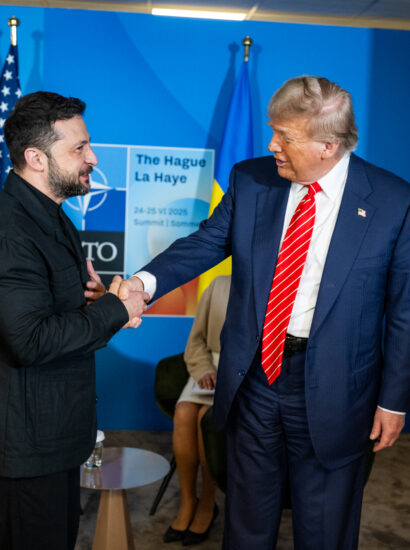In the previous elections, the PSD decided to form a minority government instead of making a pact with Chega. Why do you think they did that?
I think for several reasons. The first reason is that they have received orders from the EPP in Brussels not to form such a coalition.
All indications are that the red lines for the nationalist right-wing parties will be a policy defined by the EPP for all its members.
The second reason is that the PSD made a miscalculation, considering that Chega would be forced, in order not to lose voters, to obediently follow the PSD policy.
The third reason, derived from the second, is that the PSD thought that Chega, obliged to always support the PSD, would end up losing voters to the PSD. As it is clear today, the PSD was deeply mistaken in its calculations.
Now, after the motion of censure, elections are coming up again in Portugal. Portugal is heading towards its third legislative elections in three years, why is there this instability in your country?
This instability is due precisely to the fact that the PSD did not form a coalition with Chega, materializing a right-wing absolute majority that would have had the capacity to govern stably for four years and to be able, with that absolute majority, to carry out the structural reforms so necessary for Portugal’s development.
Portuguese parties are not used to forming coalitions, because for 45 years the political landscape consisted of two large parties that often had absolute majorities.
However, the fragmentation of the parliamentary landscape and, above all, the emergence of a third major party, Chega, has changed everything and it is now impossible for a single party to govern with an absolute majority.
PSD and Chega could have a majority with a coalition government, do you think that this time there can be an understanding?
The current PSD candidate for Prime Minister, Luis Montenegro, has already declared that he would not enter into coalition with Chega after these elections.
This being the case, and in the event that there is again a right-wing majority formed by the PSD and Chega, there can only be a coalition if the PSD changes its candidate for prime minister after the elections and the post is filled by someone who accepts this coalition.
This solution will probably, but not necessarily, imply new elections, which will initially increase political instability, but will then ensure lasting stability with the materialization of a strong right-wing majority.
Chega will surely be the third most important party again, what are your main proposals for Portugal?
First and foremost, to guarantee Portugal’s sovereignty in the context of the growing federalization of the European Union, without losing more competences to Brussels but, on the contrary, trying to recover some of those already lost. This both internally, within the Portuguese government, and in the wider context of Patriots for Europe.
We also will combat the woke ideology and the policies influenced by it at all levels and in all areas.
We want the EU to return to being the Europe of Nations.
In the field of the Armed Forces, providing them with sufficient organization and means so that they can effectively defend our land, air, and sea borders, that is to say, our independence and our freedom. Rejecting their integration into a vague European army, which will only be possible on a case-by-case basis and always with clear deadlines and objectives.
There are parties in your political spectrum that want to reduce the size of the State, lower taxes, stop giving public money to organizations… do you also want to do that?
Yes, we want to reduce the size of the state to a minimum, returning the power concentrated in the bureaucratic machinery of the state to citizens and families. Also, return to the Portuguese the freedom to dispose of their wealth by drastically reducing the tax burden.
Completely open public policies (health, education, social security) to private initiative and, at the same time, make state services efficient using standardized and effective management criteria.
Abolish all direct or indirect support to the media. They must survive by their quality, never by the support they receive from the State.
Finally, in 2026 Portugal will have municipal and presidential elections. Do you think leader of Chega André Ventura has a real chance to become president of Portugal?
If André Ventura runs, he will have little real chance of becoming president. Our elections are two rounds. He would certainly make it to the second round, but then everyone else would unite against him, as has happened in France throughout the various presidential elections.







